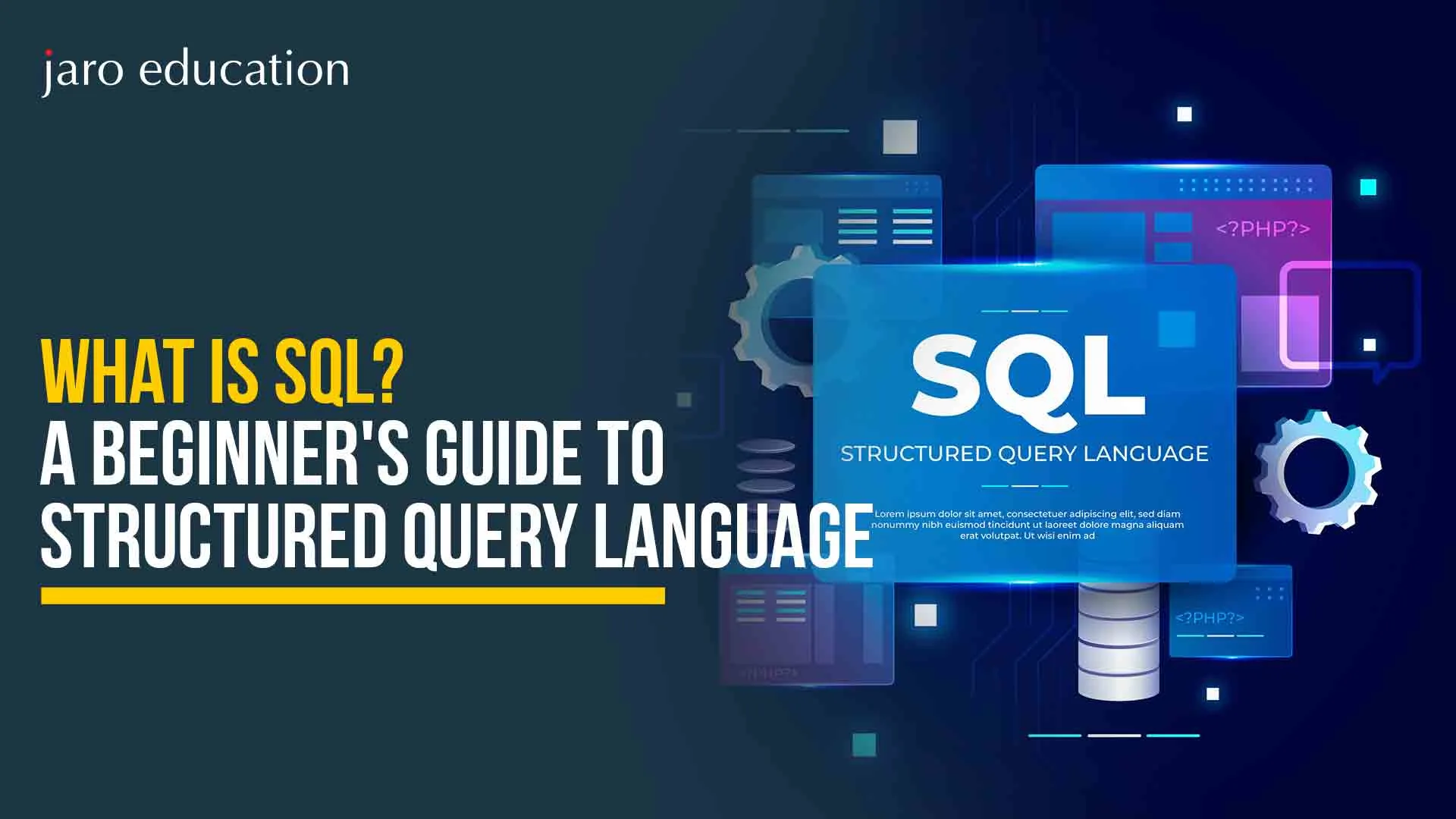What is SQL? A Beginner’s Guide to Structured Query Language

Table Of Content
- SQL definition: What is SQL? Basics
- Types of SQL Databases
- Why is SQL a Must-Have Skill for Professionals?
- How SQL Works: The Main Components
SQL definition: What is SQL? Basics

Types of SQL Databases

Why is SQL a Must-Have Skill for Professionals?
SQL is becoming the ultimate power move across careers. Here’s why SQL for beginners is a must and why you definitely want it in your resume:
1. High Demand in the Job Market
Data-driven decision-making has become the standard in industries across the board. As a result, companies actively seek professionals with SQL expertise. Whether you are in finance, IT, business intelligence, or marketing, having SQL skills makes you a valuable asset.
2. Enables Efficient Data Analysis
Professionals who work with large datasets need an efficient way to extract insights. SQL allows users to filter and analyze data quickly, making it a crucial tool for business analysts, data analysts, and marketing strategists.
3. Saves Time by Automating Data Retrieval
Instead of manually sifting through spreadsheets, SQL queries enable users to automate data extraction, saving valuable time and effort. With a single SQL query, you can retrieve and organize thousands of records in seconds.
4. Competitive Salaries for SQL Professionals
SQL expertise opens doors to high-paying roles. According to reports, professionals skilled in SQL earn competitive salaries, with job roles such as:
- Data Analyst (₹5-10 LPA)
- Business Intelligence Analyst (₹6-12 LPA)
- Database Administrator (₹5-12 LPA)
How SQL Works: The Main Components

SQL vs NoSQL: What’s the Difference?
Best Ways to Learn SQL
- Enroll in an Online Course: Websites like Jaro Education and LinkedIn Learning offer beginner-to-advanced SQL courses, often including real-world examples and projects. Many also come with community support and quizzes to reinforce learning.
- Practice with SQL Sandboxes: Tools like SQLZoo, Mode SQL Tutorial, W3Schools, and LeetCode SQL provide free, interactive environments where you can write and test queries instantly, no installation required.
- Work on Real Projects: Learning becomes easier when you apply concepts to actual use cases. Create your own databases for things like expense tracking, inventory management, or habit tracking.
- Join a Certification Programme: Formal certifications from recognized platforms like Jaro Education can help you gain credibility and boost your resume. Many offer hands-on labs and projects to prepare you for real-world jobs.
How Learning SQL Can Boost Your Career
- Enhances your ability to analyze and interpret data.
- Opens up job opportunities in data analytics and business intelligence.
- Complements other skills like Python, Excel, and Power BI.
SQL is a skill that remains relevant across industries, making it a valuable addition to your professional toolkit.
Final Words
If you want to stay competitive in today’s job market, learning SQL is a smart choice. It provides a foundation for working with data, helps professionals make better decisions, and opens doors to high-paying career opportunities.
For those looking to gain SQL expertise through structured learning, consider enrolling in a data analytics or executive education programme with Jaro Education.
Frequently Asked Questions
Find a Program made just for YOU
We'll help you find the right fit for your solution. Let's get you connected with the perfect solution.

Is Your Upskilling Effort worth it?

Are Your Skills Meeting Job Demands?

Experience Lifelong Learning and Connect with Like-minded Professionals

